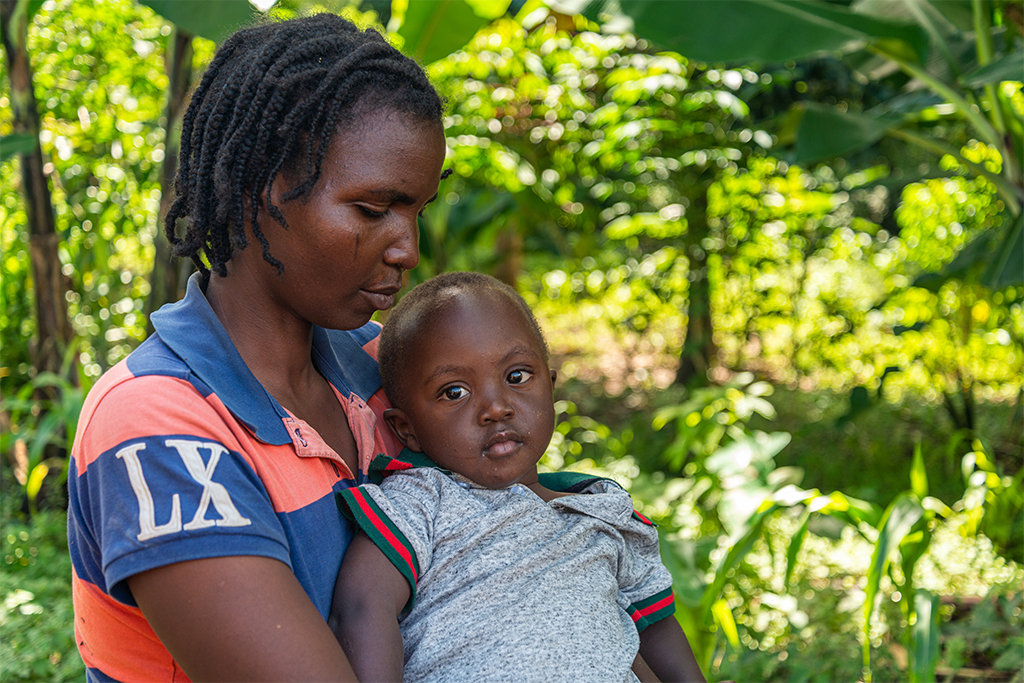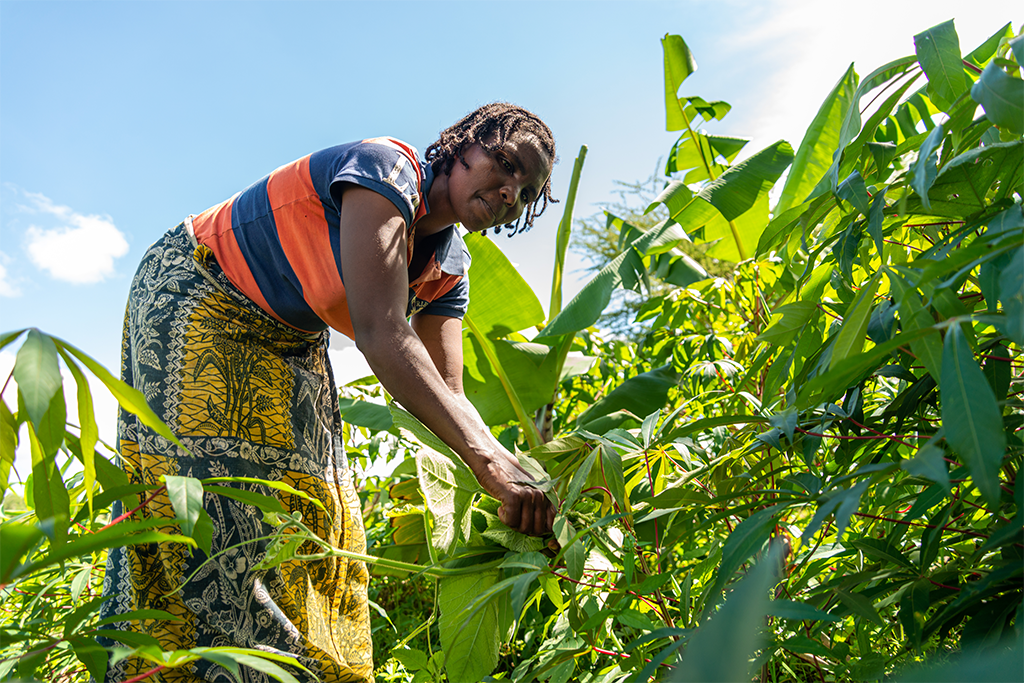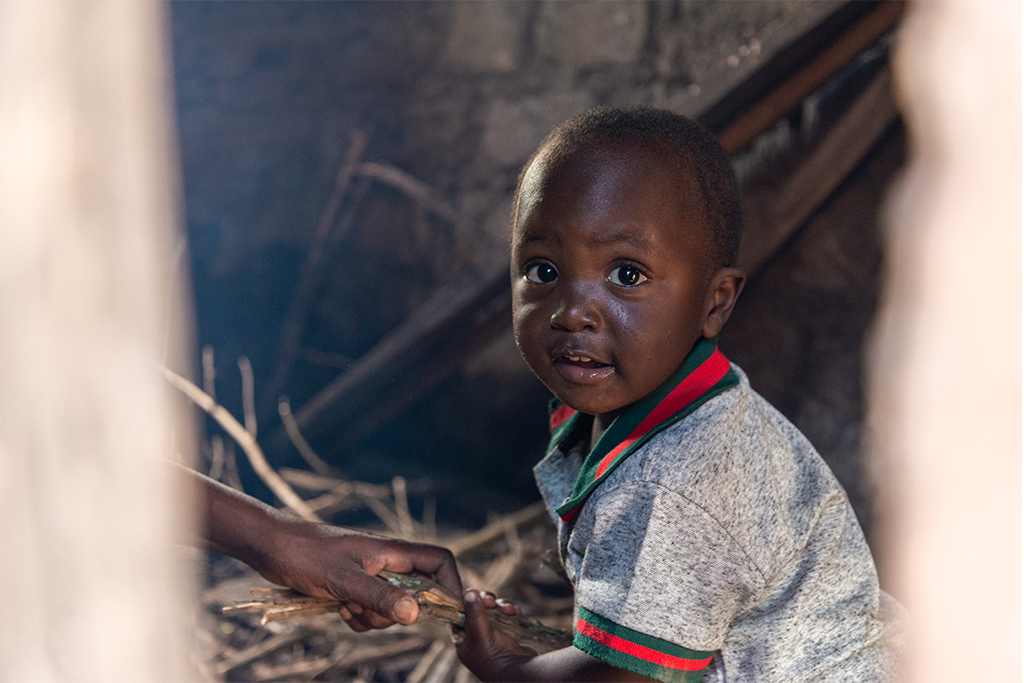One night, Mary Mushi returned home late to the sight of her children and their father seated next to a fire. Her heart sank at the look on their faces. It was one she had seen all too often.
“When I saw them, I knew they were hungry,” says Mary.
“My husband did not make money that day. When I asked if they had eaten, my husband said they had drunk hot water. We did not have any other food in the house, so I took the bucket of tomatoes I’d brought home, cut them into pieces, and that was our supper.”
Due to an inability to afford the expenses, like her husband, Michael, Mary did not have the chance to attend secondary school. Instead of going to school, she helped her parents on their farm in Tanzania until she got married. With only primary school education, the jobs she and her husband were eligible for didn’t pay well.
They both worked on other people’s plantations as day labourers, and Mary farmed their small piece of land. But it would take at least 60 days before the crops were ready for harvest. While they waited, the couple had to choose which meals to skip.

The sight of her four children withering away from hunger weighed deeply on Mary’s heart. To make sure that her children ate, she would sometimes beg for food from her neighbours.
“I remember when I was nursing my third child, I could not produce milk,” says Mary. “So, I drank hot water to see if I could produce even a little.”
Despite all their efforts, Mary and Michael always fell short. The money they earned was never enough, and their harvest kept them fed for just a few months.
But life changed when she joined our Child Survival Programme.
She and her youngest child Apolinari were both registered into the programme, which provides pre and postnatal care to mothers and babies.
“After just a few visits from staff from the project, I realised what I had done wrong when I was nursing my other children,” says Mary. “With my other children, I did not pay attention to how I breastfed them. I didn’t understand that the food I ate could affect them.”

Besides educating Mary on how to nurture her son, Compassion’s church partner gave her food, clothes, and medical insurance. With the project supporting her, she watched her son grow into a healthy and energetic boy.
But then the COVID-19 pandemic hit.
Two months before Apolinari’s second birthday, the first COVID-19 case was reported in Tanzania. Just a few weeks later, Mary and Michael felt the pinch of the pandemic in their pockets.
“I went from making about £2 in a day to making £0.95. Even that amount was not guaranteed,” says Mary.
Suddenly, they were facing the same desperate situation they used to live in.
Again, Compassion’s church partner stepped in to help. During a home visit, Mary informed staff member Rehema Muriro of the challenges they were facing. Rehema and the project director then came up with a creative solution: teaching mothers how to make meals out of plants they could easily find around them.
“We decided to teach parents how to use the foods that were around them to make balanced meals,” says Rehema. “We taught each one of them individually during home visits.”
It was an eye-opening visit for Mary.
“When she visited me, I showed her our farm. I had planted pumpkins and cassavas. I knew I could eat the leaves of both plants, but I did not know how to process cassava leaves. She taught me how.”
“I am glad I will not see my children starving again,” says Mary.
Families like Mary’s depend upon every penny. By simply adding a food that they can find easily into their meals, Mary can use the small savings for other expenses.

These days, Mary never dreads coming home to hungry faces. She’s now looking forward to a brighter future.
There are so many people who have already given so generously to our Child Survival Programmes. On behalf of mothers like Mary and her family, thank you!
If you too are interested in helping other mothers and their children thrive, please visit Compassion Interventions for more information.
You can also start supporting a child from the age of one through our Child Sponsorship Programme. You’ll become part of a vital team of people caring for them and providing for their physical and emotional wellbeing.
You can fund their support, send messages of encouragement to them & their family, pray for them and enable them to thrive.




